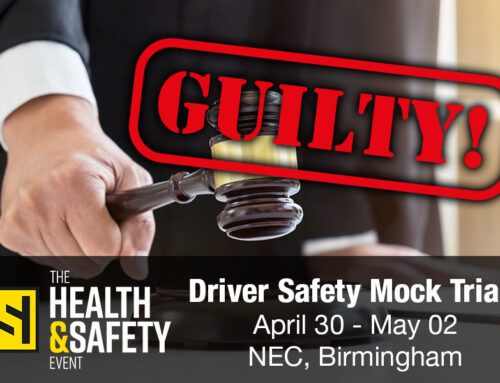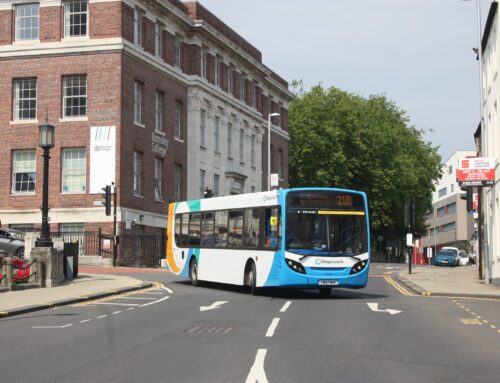Employers and fleet operators across the country, whose commercial vehicles are defective, or whose drivers break the law, are now coming under closer scrutiny
Police forces around the country are increasingly working alongside other agencies such as the DVSA, HSE, HM Revenue & Customs and Highways England on initiatives that are identifying large numbers of non-compliant business drivers and commercial vehicles.
With a third of road collisions involving someone who is driving for work at the time, it isn’t always just the driver at fault. Poor management and work procedures can be a significant contributory factor. Employers therefore need to address these challenges urgently.
One such initiative was implemented on the M5, where checks were carried out in the motorway service area on almost 120 vehicles being used to tow. Inspections showed that a staggering 94% of those were non-compliant in some way. Offences included incorrect hitching, no emergency brake cable, insecure loads, overloading – even unlicensed drivers and the use of red diesel! One of those drivers checked, driving a works van and towing a trailer with plant on the back, didn’t have the correct licence to tow – when his employer was asked to send another driver to take over the journey, they demonstrated a total lack of awareness of their legal responsibilities by sending another driver who also lacked the correct driving licence.
Other initiatives around the country have highlighted commercial vehicles with significant safety-critical defects, and open flatbed trucks with loose items in the back such as plant, wheelbarrows and powertools. One of the worst examples including three saws without blade covers and not strapped down in any way – all of which can suddenly become highly dangerous missiles in the event of an incident, whether caused by the driver or another road user.


An example of one non-compliant commercial vehicle including three loose saws with no blade covers
Compliance stops in Humberside have found similar offences and at a similar high level of non-compliance. One recent initiative found an average of two offences per vehicle/driver. With police resources stretched, these initiatives yield significant results in terms of the manpower and resources invested.
The purpose of these stops is to raise awareness of the seriousness of the offence, both for the driver and the employer. The driver is ultimately responsible for his or her behaviour on the road, as well as the roadworthiness of the vehicle, however, the Police and the judiciary are increasingly aware that drivers are not always wholly at fault. In serious incidents – where accepted company practice or a lack of appropriate management was a contributory factor – directors are being called to account!
Drivers also need to feel empowered to challenge an employer who fails to maintain vehicles properly or who, either inadvertently or intentionally, has work policies that encourage unsafe driving. The penalty points go to the driver, not the company, and could jeopardise the driver’s own licence, and therefore his livelihood.
In December 2018, the Devon and Cornwall Police ‘No Excuse’ team cracked down on poor driving and poorly maintained vehicles as part of Operation Logjam – a pre-Christmas multi-agency initiative in the South West with a focus on light commercial vehicles.
560 drivers were found to have broken the law including 132 drivers of commercial vehicles. The approach of Christmas often leads to an increase in motoring offences from commercial drivers as they rush around to meet tight delivery schedules.
Offences picked up on the day included:
- A director of a plant hire firm, who already had 3 points, was reported for driving at 95mph.
- Another director of a smaller company was also reported for driving at 95mph
- A motorist reported for careless driving turned out to be on his way back from a job interview as a class 1 tanker driver. 3 penalty points would disqualify him from this role.
- A self-employed driver in a liveried van for a major delivery company was stopped for eating whilst driving and found to have borderline defective rear tyres.
- A union representative, travelling for work, was also stopped for careless driving.
- The driver of one Ford Transit tipper truck was found to have tyres worn so low the structural cord was exposed
- Unbelievably, one driver was even reported for inconsiderate driving after he headlight flashed one of the unmarked ‘No Excuse’ police vehicles to get out of his way as he sped along the A38.
MPC Ralph Delbridge of the No Excuse Team, who led the Operation, said: “We were able to offer discretionary words of advice to several commercial drivers. Additionally, Highways England staff conducted surveys with drivers as part of their ‘Driving for Better Business’ approach and will follow these up with company and fleet managers to further educate, not only the drivers but also the employers.”
“This helps to ensure that employers are aware of the speed restrictions their drivers have to work within and to ensure not only that realistic scheduling is compiled, so that they do not have to speed between jobs or deliveries, but also that they take into account the health and safety of their driving staff. This further protects all road users from the risk of harm or serious injury.”
Poor management and work procedures can be a significant contributory factor in the roadworthiness of your fleet and the safety of your drivers.
This is where Highways England’s Driving for Better Business campaign can help. Through its ‘7-steps to excellence’ process, it can help employers get the basics right with a range of free resources covering risk assessment, management awareness, policies and record keeping. Simply go to the ‘Getting Started’ section





